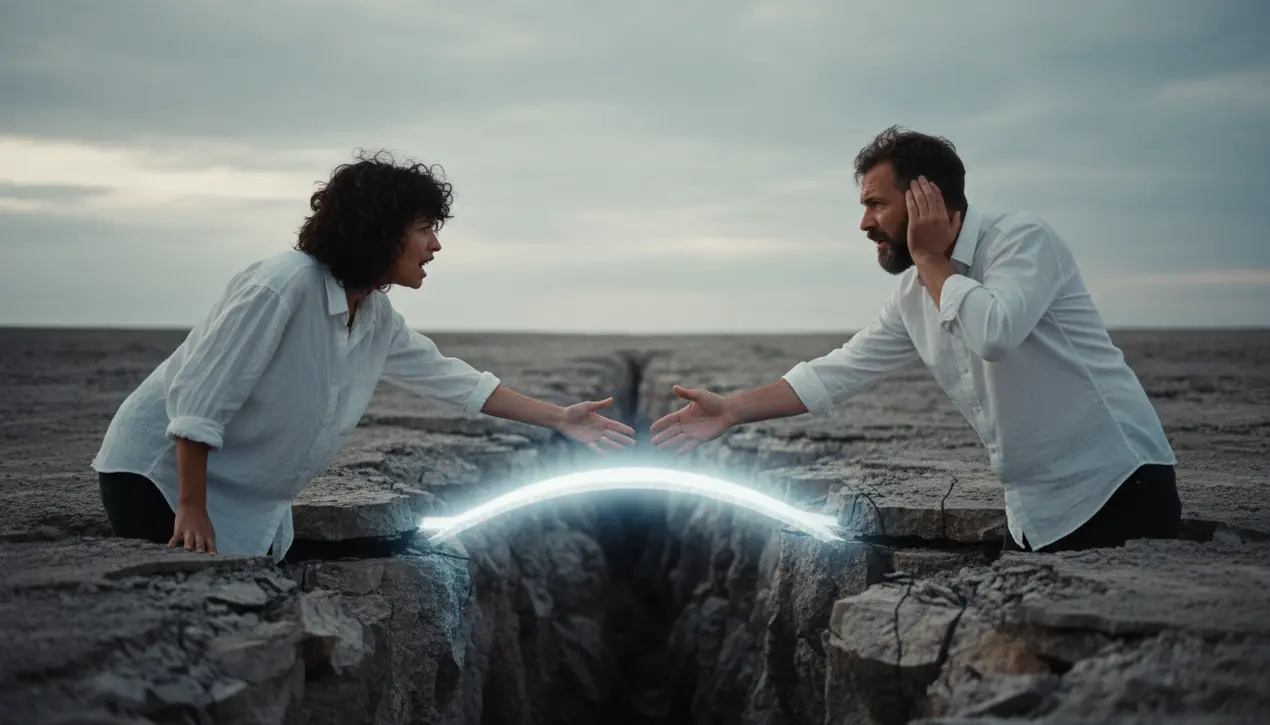
OthereducationEducational Policy
The Lifeline of Listening: How to Mend Fractured Communication
LA
Laura Bennett
2 hours ago7 min read
It begins with a spark—a thrilling connection that seems to bridge the inherent gap between two people. Then, inevitably, a conflict arises.You discover you are having profoundly different experiences of the same event, and suddenly you are both clinging to the edge of a chasm, arguing over the nature of your shared reality. This universal drama of communication breakdown is a pivotal moment; our response determines the future of our relationships.In 1951, against the ominous backdrop of the Cold War—a terrifying macro-scale communication failure—renowned psychologist Carl R. Rogers delivered a landmark address.Speaking at the Centennial Conference on Communications, he presented a radical idea: true communication starts not when we speak, but when we listen with the genuine intent to understand. Rogers identified our greatest obstacle as the instinct to judge, evaluate, and approve or disapprove of what another person says.We are often so preoccupied with preparing our defense and asserting our own viewpoint that we fail to grasp the world from their perspective. Through interviews with dozens of couples, friends, and colleagues who have weathered these ruptures, a consistent pattern emerges.The surface argument—be it about chores or business strategy—is rarely the real issue. The core conflict is almost always a fundamental, unspoken need to feel heard and validated.Rogers’s concept of ‘unconditional positive regard,’ while born in therapy, is a lifeline for any relationship. It is the conscious act of creating a psychological safe space where another person can express their authentic self without fear of judgment.This is not about agreeing with them; it is about acknowledging their reality. Contrast the wall-building statement, ‘You are wrong to feel that way,’ with the bridge-building alternative, ‘I can see why you feel that way, given your experience.’ The repercussions of neglecting this principle extend far beyond personal loneliness. We see its absence in our polarized politics, in deadlocked boardrooms, and in the icy silence that can envelop a family for years.The practice of active, reflective listening is not a soft skill—it is the essential technology of human cooperation. It demands a temporary suspension of the self, an empathetic leap into another's perceptual world.It requires us to set our defenses aside and ask, with authentic curiosity, ‘Can you help me understand what this looks like from your side?’ The path to repair does not start with a solution, but with that very question. In the context of the Cold War, Rogers was addressing the survival of nations.In our daily lives, he was speaking to the survival of our most meaningful connections. The next time you find yourself on that precipice, remember that the first step back to solid ground is not to fight for your own reality, but to sincerely seek to understand theirs.
#communication
#psychology
#Carl Rogers
#relationships
#conflict resolution
#featured
Stay Informed. Act Smarter.
Get weekly highlights, major headlines, and expert insights — then put your knowledge to work in our live prediction markets.
Related News
Comments
Loading comments...
© 2025 Outpoll Service LTD. All rights reserved.